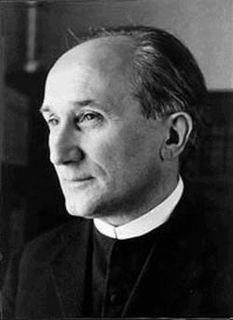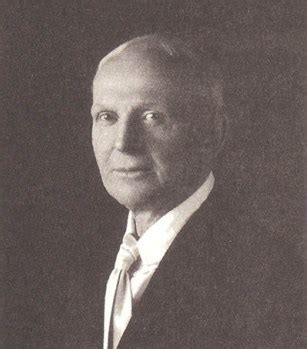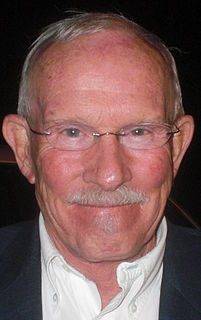A Quote by Romano Guardini
The word is a thing of mystery, so volatile that it vanishes almost on the lip, yet so powerful that it decides fates and determines the meaning of existence. A frail structure shaped by fleeting sound, it yet contains the eternal: truth. Words come from within, rising as sounds fashioned by the organs of a man's body, as expressions of his heart and spirit. He utters them, yet he does not create them, for they already existed independently of him. One word is related to another; together they form the great unity of language, that empire of truth-forms in which a man lives.
Quote Topics
Almost
Another
Body
Come
Contains
Create
Determines
Does
Empire
Eternal
Existed
Existence
Expressions
Fleeting
Form
Forms
Frail
Great
Heart
Him
His
Independently
Language
Lip
Lives
Man
Meaning
Meaning Of
Mystery
One Word
Organs
Powerful
Related
Rising
Shaped
Sound
Sounds
Spirit
Structure
Them
Thing
Together
Truth
Unity
Volatile
Which
Within
Word
Words
Related Quotes
We must make a great difference between God's Word and the word of man. A man's word is a little sound, that flies into the air, and soon vanishes; but the Word of God is greater than heaven and earth, yea, greater than death and hell, for it forms part of the power of God, and endures everlastingly.
'Fire' does not matter, 'earth' and 'air' and 'water' do not matter. 'I' do not matter. No word matters. But man forgets reality and remembers words. The more words he remembers, the cleverer do his fellows esteem him. He looks upon the great transformations of the world, but he does not see them as they were seen when man looked upon reality for the first time. Their names come to his lips and he smiles as he tastes them, thinking he knows them in the naming.
The true church is not made of creeds and forms, nor is it contained in walls of wood and stone; the heart of man is its temple and the Spirit of truth is the one guide into all Truth. When men learn to turn within to the Spirit of truth, who is in each one for his light and inspiration, the differences between the churches of man will be eliminated, and the one church will be recognized.
Public opinion contains all kinds of falsity and truth, but it takes a great man to find the truth in it. The great man of the age is the one who can put into words the will of his age, tell his age what its will is, and accomplish it. What he does is the heart and the essence of his age, he actualizes his age. The man who lacks sense enough to despise public opinion expressed in gossip will never do anything great.
Generally there is in man a divinity which strives to push him onward and upward. We believe that this power within him is the spirit that comes from God. Man lived before he came to this earth, and he is here now to strive to perfect the spirit within. At sometime in his life, every man is conscious of a desire to come in touch with the Infinite. His spirit reaches out for God. This sense of feeling is universal, and all men ought to be, in deepest truth, engaged in the same great work—the search for and the development of spiritual peace and freedom.
He who has learnt to control his tongue has attained self-control in a great measure. When such a person speaks he will be heard with respect and attention. His words will be remembered, for they will be good and true. When one who is established in truth prays with a pure heart, then things he really needs come to him when they are really needed: he does not have to run after them. The man firmly established in truth gets the fruit of his actions without apparently doing anything. God, the source of all truth, supplies his needs and looks after his welfare.
It is not a slight thing, gentlemen, to force a man to say what he is, or what he believes himself to be; for that supreme word of man, that single expression which he utters of and upon himself is decisive. It lays down the basis upon which all judgment of him is to be formed. From that moment all the acts of his life must correspond to the answer given by him.
For language to have meaning, there must be intervals of silence somewhere, to divide word from word and utterance from utterance. He who retires into silence does not necessarily hate language. Perhaps it is love and respect for language which imposes silence upon him. For the mercy of God is not heard in words unless it is heard, both before and after the words are spoken, in silence.
Every sentence has a truth waiting at the end of it and the writer learns how to know it when he finally gets there. On one level this truth is the swing of the sentence, the beat and poise, but down deeper it's the integrity of the writer as he matches with the language. I've always seen myself in sentences. I begin to recognize myself, word by word, as I work through a sentence. The language of my books has shaped me as a man. There's a moral force in a sentence when it comes out right. It speaks the writer's will to live.
But though every created thing is, in this sense, a mystery, the word mystery cannot be applied to moral truth, any more than obscurity can be applied to light. ... Mystery is the antagonist of truth. It is a fog of human invention, that obscures truth, and represents it in distortion. Truth never envelops itself in mystery, and the mystery in which it is at any time enveloped is the work of its antagonist, and never of itself.
Sound words can't be understood through formal study of the language alone. They're felt when you immerse yourself in the culture or lifestyle that becomes a part of you. The Japanese language is abundant with onomatopoeia. Even though I've lived in Japan a long time, sound words are still an uncertain territory. And I think new words are being created every day. Even when I don't know a word I can sometimes connect it to a meaning using the sensations produced by the sounds, which feels like I'm playing with words.



































